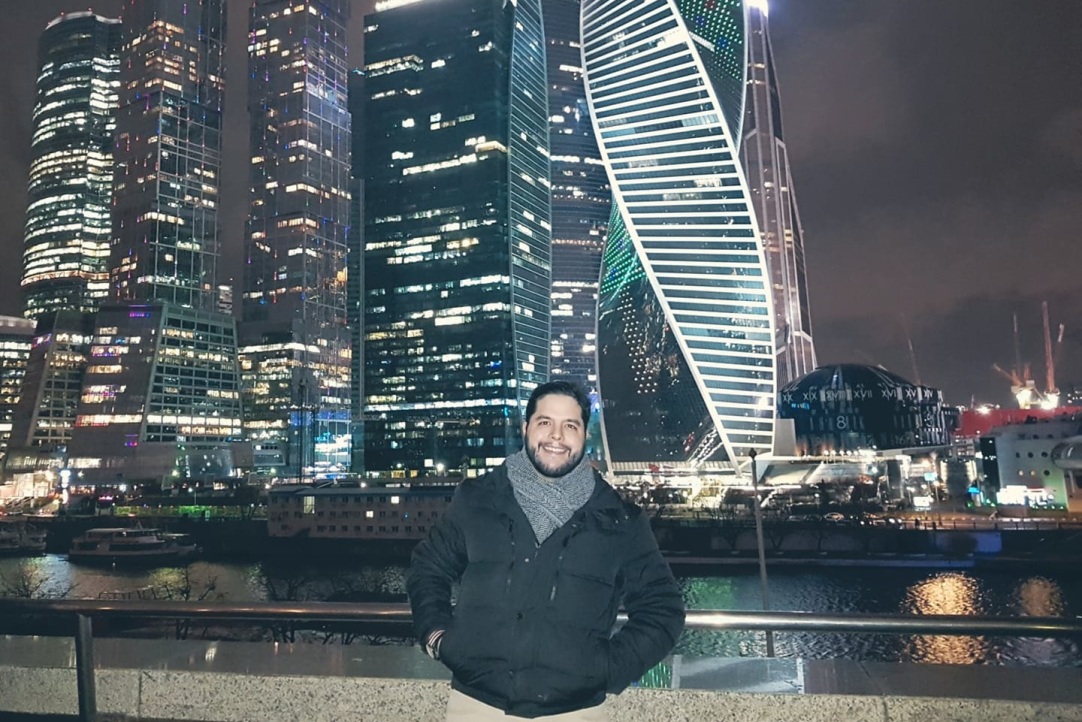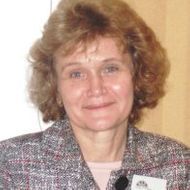Pursuing a PhD in Russia: ‘Attractive and Exotic’

After getting his Master’s degree in Computer Science in Rome, Julio Carrasquel decided not to pursue a corporate career in IT, but to move to Moscow to get a PhD at HSE University. As a result, he received a scholarship on the Advanced Doctoral Programme, successfully defended his thesis, and was named one of the university’s Best Teachers. Julio Carrasquel, Research Assistant at the Faculty of Computer Science Laboratory of Process-Aware Information Systems (PAIS Lab), talked with the HSE News Service about his path in academia and life in Russia.
Academia as an Alternative to a Corporate Career
When I was finishing my master's programme in Engineering in Computer Science at Sapienza University of Rome, I participated in some interviews with IT companies. Nonetheless, in that period I perceived the idea of working in a company as something that would become a routine job, with a slim margin of freedom for innovation. On the other hand, I got very interested in the fields I was studying in my master's programme such as data science, process mining and software engineering.
I was captivated by the idea of pursuing a PhD, deepening my knowledge, and innovating in one of those fields.
While exploring options about where to do a PhD, I came across the Laboratory of Process-Aware Information Systems (PAIS) at the Faculty of Computer Science at HSE University. The PAIS laboratory focuses on process mining and formal methods in software engineering. Having experience in these areas, I decided to apply to the HSE Advanced Doctoral Programme. After a series of meetings with the director of the HSE Doctoral School of Computer Science, Sergei Obiedkov, and my current supervisor, Irina Lomazova, I got accepted in the programme and moved to Moscow in October 2018.
Challenges for an International PhD Student
One of the interesting and positive benefits when joining HSE University was the provision of a scholarship and housing in a dormitory. This way, I did not need to worry about extra-academic issues, but only to focus on the PhD.
The overall structure of the university was very organised. This includes the PhD study plan, which did not focus only on the research itself, but also provided additional courses to complement and support research. Undoubtedly, the fact of studying in Russia and being surrounded by its culture also made the experience of the PhD attractive and exotic. At the same time, it was challenging to start a life in a completely new place with a different lifestyle, weather, and language. However, these are challenges that motivated international students can overcome and actually enjoy, so the experience is definitely worth it.
Academic Life: Research, Events, Teaching
In my academic path, I believe that my most important achievement was completing the PhD programme itself, including the elaboration of the thesis and its final defence. But of course, there are other milestones that complement such an achievement. For example, I had the opportunity to publish several papers about my research on process mining, both by presenting them in conferences or by publishing them in electronic journals. Among the conferences at which I was able to present my work, it is worth mentioning my participation in the Doctoral Consortium of the 1st International Conference in Process Mining in Aachen, Germany (June 2019). Several doctoral students around the world gathered to discuss their PhD research plans. Also, the event itself was very significant because it was the first occurrence of a fully-fledged independent conference in the process mining field.
In parallel with my PhD, I have been working for two years as an invited professor on the bachelor's programme in Data Science and Business Analytics at HSE University.
I conduct lessons on C++ programming and Algorithms & Data Structures, and in the 2021–2022 academic year, I was named one of the Best Teachers of the Faculty of Computer Science.
Process Mining, a Highly Applicable Research Field
My research is positioned on the field of process mining.
Process mining is a data science discipline that focuses on the analysis of business and software processes using so-called ‘event logs’.
Event logs captured by information systems record real behaviour executed by processes (for example, we may be interested in analysing activities executed by processes and the ordering in which such activities were executed). In particular, my research focused on process mining methods for the modelling and analysis of processes in stock trading platforms (where buyers and sellers exchange financial instruments).
As a result, we came up with methods that check whether the real behaviour observed in certain processes of a trading system (as observed in event logs) comply with their specification.
We formalise the specification using a well-known process-modelling language known as Petri nets. The research project had practical relevance, as we initially worked in cooperation with Exactpro, a software testing company whose clients are actually global stock exchanges.

Irina Lomazova, Academic Supervisor of Julio Carrasquel’s PhD thesis, PAIS Lab Head, Professor at the School of Software Engineering
Quite often, the solution of a specific applied task brings research outcomes that are applicable in other subject areas. Julio Carrasquel’s PhD thesis (Formal Modeling and Validation of Stock Trading Systems Behavior: A Petri Net Approach) analyses the processes in stock trading systems, but the analysis of modelling methods he performed and the methods to check the system model’s conformance to the system’s ‘digital footprint’ he developed are more general and are applicable to various multi-agent processes, ie processes in which the participants interact with each other. This is what makes Julio’s research results important and interesting.
During his doctoral studies, Julio actively participated in PAIS Lab’s projects. He is enthusiastic about research, and it is a pleasure to work with him. Julio has been proactive, responsible and hard-working, which helped him complete his thesis on time and successfully defend it.
Working on the Thesis
The preparation process was in general very organised.
The university provides a study plan that gives some guidance about how to pursue the research.
Also, each semester, departmental assessments were conducted where we had to discuss our work and latest achievements. These periodical assessments are fruitful because they allow us to reflect on whether we are following the correct research path, or whether we should rethink other directions.
One of the difficulties we had at the beginning of the PhD was the lack of a clear picture of the precise results to obtain. Fortunately, the periodical meetings not only in the department, but also with other researchers and external collaborators, allowed us to better define the concrete outcomes of this work.
The communication, and in general the relationship with my supervisor, Prof. Irina Lomazova, was perfect. Throughout my PhD studies, she always kept a well-balanced trade-off between giving directions and providing freedom for my own creativity. Also, she always took care that all conditions were met for me to conduct the research without additional issues. Undoubtedly, her guidance and support have helped make the completion of my work possible. I am very thankful to her.
Living in Russia
When I moved to Russia back in 2018, I already had some preliminary basic knowledge of the language. Then, when I started my PhD, I decided to attend the Russian language courses provided by the HSE Faculty of Humanities. These courses were free for international students.
I attended these courses for one year, and I can say that the knowledge and practice I got there became an important base of my knowledge of the language.
Now, I believe a have an upper-intermediate level of Russian. This is very handy, for example, when dealing with administrative issues at the university.
Moscow in an amazing, enormous city which has everything. It is like a country inside Russia. The transport works really well, and I enjoy walking around various places in the city, like Tverskaya or the VDNKh exhibition park. Beyond Moscow, I have had the opportunity to travel to other cities in Russia. It may sound like a cliche, but being a fan of culture and history, I also rank St Petersburg as one of my favourite cities. The Hermitage is one of my favourite places on Earth.
Julio Cesar Carrasquel Gamez
Research Assistant, Laboratory of Process-Aware Information Systems (PAIS Lab)
Irina A. Lomazova
Head, Laboratory of Process-Aware Information Systems (PAIS Lab)
Sergei Obiedkov
Associate Professor, School of Data Analysis and Artificial Intelligence
